Teaching values to children has shown to offer a wide range of benefits. With the right values, children are able to understand their world better, build character, differentiate between right and wrong, make decisions, and learn to deal with life’s challenges. One of the most important values to teach children is gratefulness, as it helps them appreciate and be thankful of the things they have.
Children who develop a sense of gratefulness are sensitive to the feelings of other people and empathetic to their needs. Grateful children develop a sense of belonging with the community, which ensures that they are likely to be cooperative in their approach at home and school. Gratefulness helps children to be emotionally healthy and they are less likely to compare themselves with others or feel envious of others. Research studies have shown that grateful children are happier, enthusiastic, determined and willing to take initiatives.
However, raising a grateful child can be a challenge, since gratefulness is not something that comes naturally to kids. Children are by design self-centered beings, something that makes it difficult for them to understand the relevance and importance of being grateful. Parents need to be patient when teaching gratefulness to their kids and practice the art of gentle persuasion. Here are 10 outstanding phrases that can help parents raise a grateful child.
#1 “It’s great to have you”
When the right moment comes, you can tell your child how grateful you are to have them in your life. You can share some details such as how life used to be earlier and how it has become better with them. This will act as a real example for your child to understand what being grateful is all about.
#2 “Tell me your gifts”
Whenever you get time, you can sit with your child and ask them to tell you about the gifts that they have. You can also rephrase this to “What are you thankful for?” Both phrases are essentially the same and it’s just a way to allow the child to develop the sense of being grateful of the things that they have. You can start the conversation by giving some examples of the things you are grateful about. This will help your child understand the concept better. Gifts could be anything that makes one feel grateful such as toys, food, pets, moments in life, friends, teachers, random events, etc.
#3 “Let’s help someone today”
Once in a month, you can tell your child that you are going to participate in some community service and ask them if they would like to accompany you. Explain it to your child that you will be helping someone today or participating in activities that would be beneficial for the community. The notion of helping others and doing things for the community will make it easier for your child to understand the concept of gratefulness.
#4 “You love to…”
There are certain things that children enjoy more than other things. It can be some type of food, a game, a comic series, a specific activity, etc. When children are engaged in the things they love, it presents a good opportunity to instill the sense of being grateful. For example, when your child may be watching their favorite TV serial, you can simply say, “You love to watch this and are grateful for it, aren’t you?”
#5 “It shows you care”
Sometimes, kids may do something on their own to help you or someone else. Such instances would be an indication that your child has already started developing the sense of being grateful. At such moments, you can tell them, “It shows you care”. It will help them understand that what they just did is an important component of being grateful.
#6 “Let’s share something today”
Children may not share the things that they like most, but you can start by encouraging them to share other stuff that they are not particularly fond of. When your child sees that the things they shared have brought joy to others, they are likely to feel good about it. At times, they may also receive something in return, which would help them understand that sharing is an important aspect of being grateful.
#7 “It’s amazing, isn’t it”?
You need to look out for moments when you can express your amazement for certain things in front of your child. For example, if it’s your child’s birthday celebration and they are having loads of fun with other kids and people while enjoying good food, then you can ask them, “Isn’t it amazing to have such celebrations?” If they nod, they would have understood a bit more about being grateful.
#8 “I’m sorry”
When you say sorry, it tells your child that people can be wrong sometimes. A child may come across various types of conflicts with other kids, teachers, friends, etc. When the child understands that they can be wrong, they would be willing to understand the other person’s perspective. This is an important step in the process of learning to be grateful.
#9 “Let’s try to forgive“
As long as there is anger or hatred, it would be difficult for a child to learn to be grateful. Once a month, you can ask your child about the things they would like to forgive. Share the benefits of forgiveness such as improved health and happiness and ask them to develop a positive approach to life.
#10 “Tell me more”
Sometimes, even the most loving parents may not be aware about what their child may be going through. It may be something that is troubling them and, they may be shy or afraid to openly discuss the issue. If you notice something unusual, make them feel secure and comforted and ask them to tell you more. When they do, their pent-up emotions would be released and they are likely to feel grateful about it.
The ultimate goal is that children should be able to “feel” grateful from deep within and not merely learn to express it through words and gestures. Some children may be too rebellious or stubborn in their approach, but regularly apprising them about the importance of gratefulness will help them visualize the associated benefits. Parents are often the role-model for their children, and if they practice gratefulness in their everyday lives, their children are likely to develop the same value system.



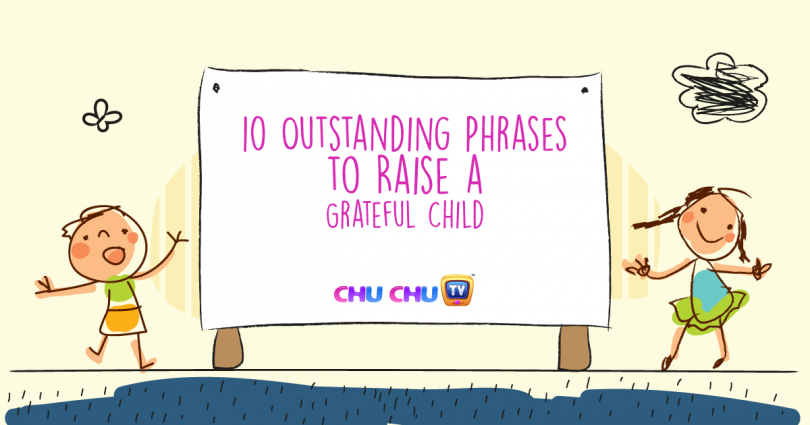
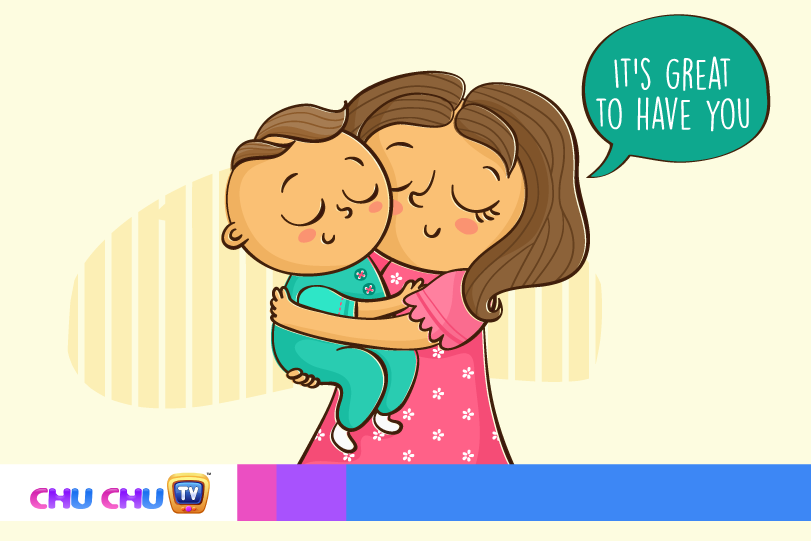
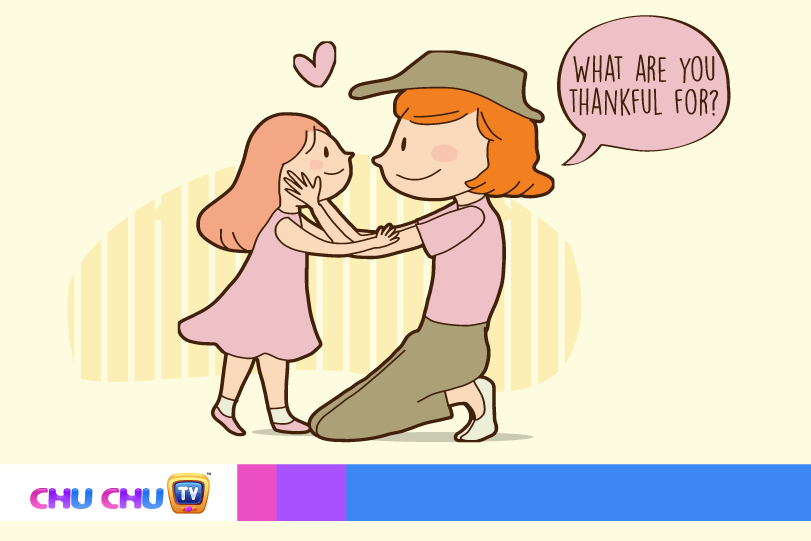
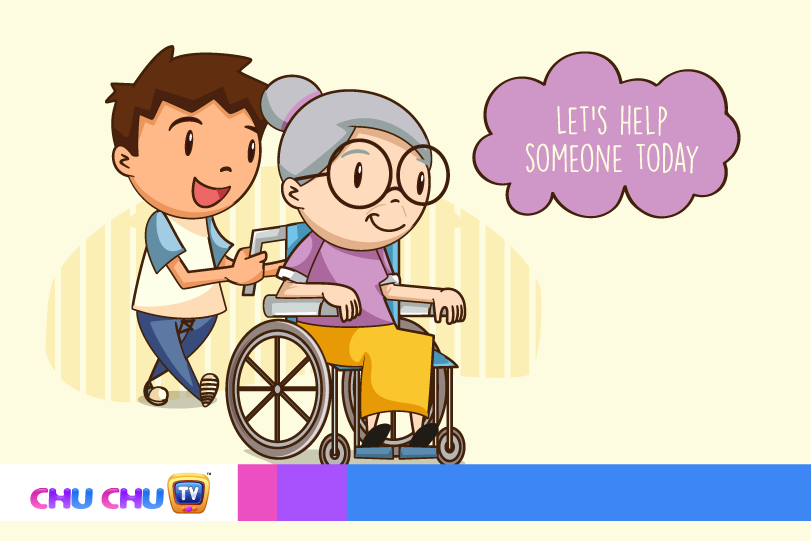
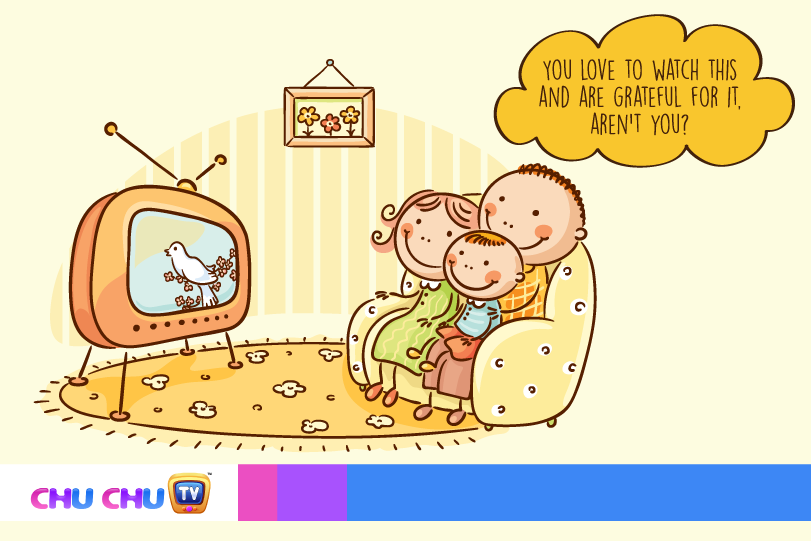

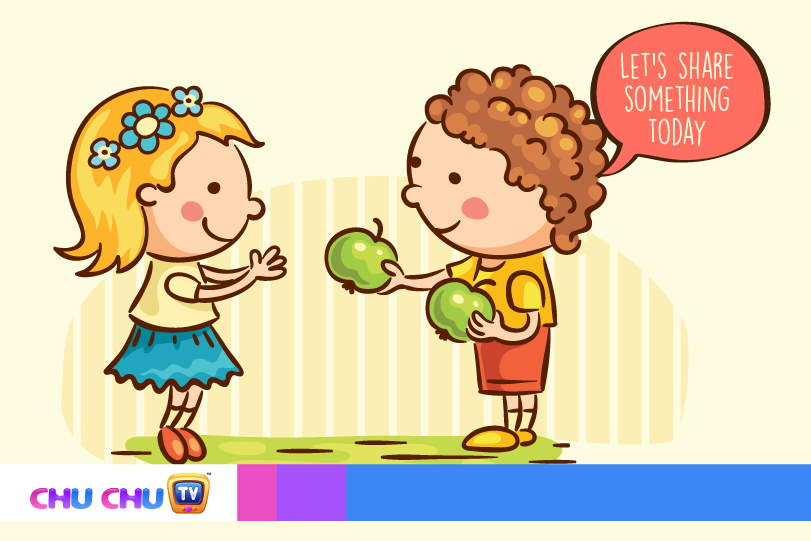


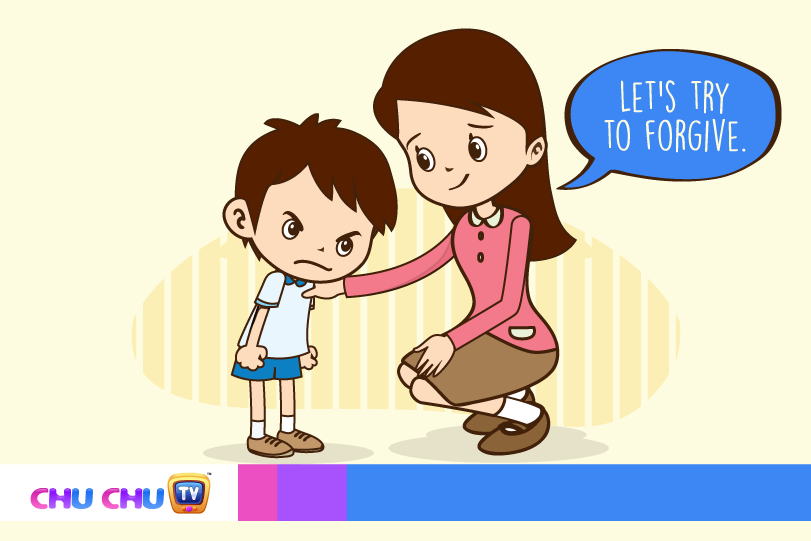
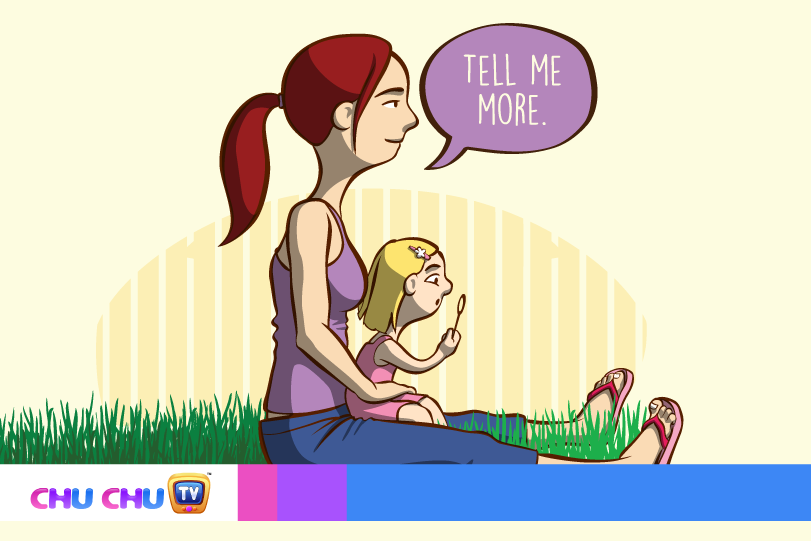






Am in love with chu chu tv
We are glad you find our blogs useful:)
Do visit and subscribe to our youtube channel https://www.youtube.com/user/TheChuChuTV for regular updates.!
Truly inspiring